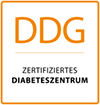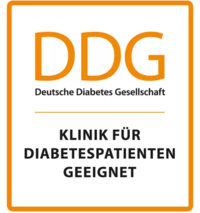Rectal Cancer — Endoscopic Dilation in Stenosis: treatment in the Best Hospitals in the World
Treatment prices are regulated by national law of the corresponding countries, but can also include additional hospital coefficients. In order to receive the individual cost calculation, please send us the request and medical records.

Department of Gastroenterology, Hepatology and Infectology
The Department of Gastroenterology, Hepatology and Infectology offers the widest range of diagnostic examinations and treatments for patients with diseases of the gastrointestinal tract, liver, biliary tract, as well as infectious diseases. The department operates the specialized Endoscopy Center, which serves for diagnostic and therapeutic procedures. There is also the Laboratory for Functional Gastrointestinal Diagnostics. The modern technical base and the exceptional professionalism of doctors make it possible to guarantee an optimal result for each patient.






Department of Gastroenterology, Hepatology and Infectology
The Department of Gastroenterology, Hepatology and Infectology offers the full range of diagnostics and treatment of diseases of the liver, pancreas, and other organs of the gastrointestinal tract. In addition, of particular interest is the treatment of cancer pathologies of the esophagus, stomach, intestines, pancreas and liver. The department is a supraregional center for the diagnostics, research and treatment of chronic liver diseases and their complications, as well as the certified Infectology Center, within which all types of hepatitis, HIV, and tropical infectious diseases are treated.






Department of Gastroenterology and Hepatology
The Department of Gastroenterology and Hepatology offers the full range of medical services in the areas of its specialization. The department's doctors carry out the prevention, diagnostics, and treatment of diseases of the gastrointestinal tract, including the liver, gallbladder, biliary tract, esophagus, and pancreas. Diagnostic options include ultrasound scans and functional tests, as well as modern endoscopic procedures that allow for making an accurate diagnosis and prescribing effective therapy. As for the treatment, the department offers patients effective drug therapy and many endoscopic interventions. Based on an independent assessment by Newsweek, an American weekly online news magazine, the department is recognized as one of the best in the world at treating gastroenterological diseases. In addition, the department is certified by the German Cancer Society (DKG) in the treatment of gastrointestinal and liver cancers. The medical facility has a high level of trust among patients, and the number of people wishing to receive medical care here is steadily growing every year.






Rectal cancer is often accompanied by intestinal obstruction. It develops when a tumor totally or partially compresses the intestine or grows into its lumen. The defecation becomes impaired, which leads to severe intoxication, severe abdominal pain, progressive loss of body weight. The foreign clinics perform procedures and operations that involve endoscopic dilation (expansion) of the intestine.
In what cases can intestinal patency restoration be required?
The main method to treat rectal cancer is surgical removal of the neoplasm. This is followed either by colostoma formation for the elimination of stool to the external environment, or the restoration of its natural elimination. Why do patients need additional manipulations to restore intestinal patency? They may be required in the following cases:
1. The final stage of cancer. Sometimes radical treatment cannot be performed at this stage, because the tumor has spread, has reached a large size, has distant metastasis, the patient is too weak and cannot undergo surgery. In this case, palliative measures become an option of choice. The doctors dilate the intestines to restore the possibility of defecation.
2. Waiting for a radical surgical procedure. There is no doubt that every patient with colorectal cancer should necessarily undergo surgery. However, surgery cannot always be performed right away. It takes time to undergo diagnostics, to wait for your turn, and sometimes to undergo radiation or chemotherapy. If a radical surgical procedure can be performed only after a month, the intestinal patency should be restored today. In such situations, the doctors use temporary solutions to normalize defecation.
3. Cancer recurrence. In some patients, colorectal cancer recurs after surgery. The repeated radical intervention cannot always be performed. The palliative procedures and operations to restore intestinal patency can serve as an alternative option. They are combined with radiation therapy and chemotherapy.
Intestinal dilation techniques
The intestinal patency is usually restored using minimally invasive procedures that are performed with endoscopic access. All the necessary instruments are inserted into the rectum through the anus.
The following treatment options can be used:
Endoscopic balloon dilation. A balloon is injected into the intestine. It swells, and thereby expands its walls. It dilates due to fluid injection. To make the procedure safe, the doctors usually use several cylinders of different sizes alternately. First, they take those that are smaller and then increase the caliber. This helps to avoid rupture of the intestinal wall.
Stenting. A metal stent is inserted inside the intestine. It holds the intestinal walls, if a tumor presses on them. A stent is a frame that looks like a mesh. However, this solution may not always be long-term. The stent placement is usually followed by a scheduled surgery in 1-3 weeks.
Endoscopic recanalization. It involves the action of a laser or other energies on that part of the tumor that protrudes into the intestinal lumen and blocks its patency. The procedure is combined with the radical treatment of the disease and does not worsen its prognosis. Nonetheless, it cannot be performed in the case of significant lumen obstruction, since the probe can be inserted in a lumen of more than 1 cm. It can sometimes be dilated in advance using surgical instruments.
What is balloon dilatation?
Balloon dilatation is a procedure, in which a balloon is inserted into the lumen of a hollow tubular organ, which is inflated with liquid and stretches the walls. In medicine, this method has been used for a very long time, but in case of diseases of the gastrointestinal tract, it has been introduced into clinical practice relatively recently.
The doctors can dilate almost any part of the digestive system. Thus, balloon dilatation of the esophagus eliminates dysphagia in the case of strictures or tumor formations. In some cases, endoscopic balloon dilatation of the pylorus can replace a surgical operation. The balloon dilatation of the stomach can sometimes be used as part of palliative cancer treatment.
The expanding balloons can also be introduced into the intestines, including for the treatment of rectal cancer. The method is used while preparing the patient for a radical surgical procedure. Sometimes it can be used as palliative treatment.
A balloon dilator is an endoscopic instrument that consists of a long catheter and balloon. It is fixed at its end in a folded state. It is injected into the intestines and pumped with liquid. The manipulation is carried out under the guidance of x-ray or other imaging methods. There are two main methods of administration, namely through the biopsy channel of the endoscope or through a flexible conductor string, which is preliminary introduced into the intestine.
Treatment abroad with the Booking Health company
To undergo rectal cancer treatment abroad, you can use the services of the Booking Health company. We have been successfully engaged in medical tourism for a long time and we are leaders in this industry. The patients from foreign clinics leave thousands of positive reviews about our work. Some reviews are recorded in video format. You can also read some reviews on our website. The website also offers the information on the cost of treatment programs of leading foreign clinics.
When booking the rectal cancer treatment via the Booking Health service, you will get a number of benefits:
- Selection of the best clinic that specializes in the bowel cancer treatment and achieves outstanding results in this field of medicine.
- Reduced cost of medical services. Your savings will reach 50% due to the lack of overpricing for foreign patients.
- Booking an appointment with a doctor on the most suitable dates.
- Preparation of a bowel cancer treatment program based on the completed examinations.
- Establishment of communication directly with your attending physician.
- Monitoring of all stages of the rectal cancer treatment program.
- Control of the cost of all procedures, invoices, return of unspent funds.
- Buying and forwarding of medicines.
- Organization of additional diagnostic or therapeutic procedures.
- Communication with the clinic after rectal cancer treatment.
Thanks to the Booking Health company, you can get treatment easier and faster, and the cost of medical services will be lower. We will provide you with top-class services. We will book a hotel for you and arrange a transfer from the airport to the clinic and back.

